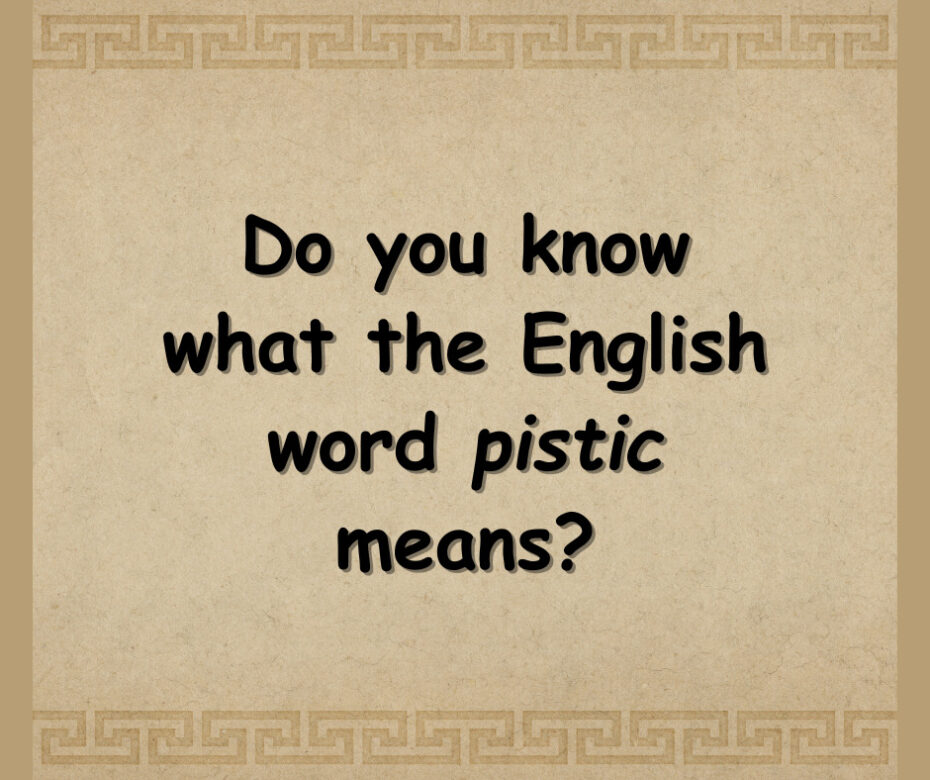In August, we started the GES Seminary with six opening classes. The most popular class, with 23 students, is first-year Greek. In that class, Drs. Tony Badger and Ken Yates are teaching the students many amazing Greek words. By the end of the second semester–that is, by next April–the students should be able to translate the Gospel of John without a dictionary.
I will introduce you to five Greek words and then give you a sentence in which they occur. You’ll have a chance to translate the sentence yourself.
Ἀμὴν. When we write a Greek word using the English alphabet, the process is called transliteration. This word is transliterated as Amēn. It means “truly, amen” (BDAG). We get the English word Amen from it.
λέγω. That transliterates to legō. It means “I say.” The English word legate is likely derived from it. A legate is someone who speaks for a high official; examples would be a papal legate or an ambassador. The word legend is probably related as well since legends are spoken stories that are passed down.
ὁ πιστεύων. This is a participle with the definite article, ho pisteuōn, meaning “the one who believes,” or “he who believes.” We get the English word pistic, meaning “having faith,” from it. See here for an article on pistic.
ἔχει. This is from the verb echō, which refers to having something. Here, it is in the third person singular and is translated as “he has.”
ζωὴν αἰώνιον. These two words occur together fourteen times in John’s Gospel. The word ζωὴ (zoē) means “life.” We get words like zoo and zoologist from it. The word αἰώνιον (aiōnion) is an adjective that means “eternal” or “without end” (BDAG). Together, the words refer to eternal life or everlasting life.
Now here is the sentence in which those words occur: Ἀμὴν ἀμὴν λέγω ὑμῖν, ὁ πιστεύων εἰς ἐμέ, ἔχει ζωὴν αἰώνιον.
I’d like you to take a moment to try to translate (and interpret) it before you read on. You’ll have to guess the meanings of some of the words. But you have enough to go on to translate the whole sentence.
Wait! Are you cheating? Did you translate it? You can check out my translation after you’ve given it a try.i
If you saw the 2002 movie My Big Fat Greek Wedding, you’ll remember that the Greek father, Gus, always made comical connections between Greek and English. In his mind, nearly all English words come from Greek. While that isn’t true, it is true that many English words do come from Greek.
You don’t need to take a year of NT Greek in order to have an appreciation for the Greek NT. Many people who’ve never taken NT Greek use a Greek-English interlinear New Testament. An interlinear shows the text in Greek, with the English translation under each Greek word.
The verse I gave you is an important one. It is one of the many places in which the Lord Jesus promises that whoever believes in Him has everlasting life that can never be lost. He says that He guarantees that whoever believes in Him has everlasting life. I say, “Amen, to that!”
If you want to learn first-year Greek, sign up for the course next summer. The class will start again next August. But whatever you do, don’t throw up your hands and say, “Well, it’s Greek to me.”
__________
i Here is my translation: “Truly, truly I say to you, the one who believes in Me has everlasting life.” The verse is John 6:47.


